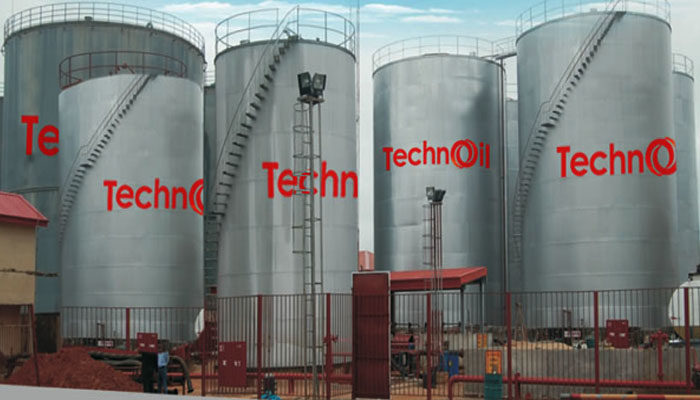- Calls for Deregulation of Nigeria’s Fuel Market Persist
The recent rise in the landing cost of petroleum products has renewed the calls for the full deregulation of the downstream subsector of the nation’s oil and gas industry, ’FEMI ASU writes
As private marketers continue to stay on the sidelines in terms of petroleum products importation, stakeholders have reiterated the need for the Federal Government to fully deregulate the fuel market.
The Nigerian National Petroleum Corporation has been the sole importer of petrol into the country for more than a year as private oil marketers stopped importation due to shortage of foreign exchange and increase in crude oil prices, which made the landing cost of the product higher than the official pump price of N145 per litre.
“In the downstream sector, the NNPC continued to ensure increased Premium Motor Spirit supply and effective distribution across the country. In pursuit of sustained seamless distribution of petroleum products and zero fuel queues across the nation, the corporation has continued to maintain an eagle eye on the daily stock of PMS,” the corporation said in its latest monthly report.
The Federal Government had on May 11, 2016 announced a new petrol price band of N135 to N145 per litre, a move that was described as a partial deregulation as it signalled the end of fuel subsidy.
The PUNCH reported in January 15, 2017 that the Federal Government had resorted to subsidy regime following an increase in the landing cost of petrol, with the NNPC, which was responsible for about 90 per cent of the importation of the product, bearing the latest subsidy cost on behalf of the government.
The Group Managing Director, NNPC, on December 23, 2017, said that the Federal Government had been resisting intense pressure to increase the pump price of petrol, noting that the landing cost of the commodity was N171.4 per litre as of December 22, when oil price was around $64 per barrel.
The Chairman, Major Oil Marketers Association of Nigeria, Mr Andrew Gbodume, said at a briefing in October that the nation’s current business model for the distribution of petroleum products was unsustainable.
“We feel the time is now to encourage a well-informed and honest debate among ourselves as Nigerians on our downstream pricing policy, showing sensitivity to the fears of Nigerians and the challenges we face as a people and as an economy to arrive at an equitable but sustainable business model,” he said.
At the OTL Africa Downstream Conference in Lagos held earlier this month, many of the speakers and panellists highlighted the importance of deregulation in the sector.
The Principal Partner, Kenna & Partners, a law firm, Prof. Fabian Ajogwu, said the process of deregulation would carry the advantage of opening up the sector to competition “where the players are able to participate at every segment of the value chain, and the removal of entry barriers in the supply and distribution of petroleum products.”
He said, “Every player is given the opportunity to refine or import petroleum products for use in the country so far as the products so refined or imported meet quality specifications.
“The appeal of the deregulation of the downstream sector is clear in that it would encourage efficiencies in the sector. However, bold reforms will be necessary to allow for private sector entry into the sector.
“These reforms would include downstream capacity enhancements and safe operations, building up strategic product reserves, improved sector logistics, private sector investment in sector infrastructure, permanently removing all petroleum product subsidies, among others.”
The Executive Secretary, Depot and Petroleum Products Marketers Association of Nigeria, Mr Olufemi Adewole, said, “With the landing cost as it is right now, we can’t bring in products because we can’t absorb the subsidy, and we don’t have access to foreign exchange.
“If the government takes the bull by the horn and deregulate the sector, then we will see private marketers do what we know best to do.”
The Chief Executive Officer/Executive Secretary, MOMAN, Mr Clement Isong, said the downstream petroleum industry regulations should be in line with international best practice.
He said the implementation and compliance with these regulations, the concept of cost recovery and competitive investment returns will ensure the sustainability of the downstream petroleum industry.
He said, “As the market players grow their business, they will increasingly become exposed to risk management challenges and will move their capital to areas where return matches the risks.
“We recommend that government should deregulate pump prices and focus on enforcing compliance with adequate regulations on health, safety, environment and quality.”


 Naira4 weeks ago
Naira4 weeks ago
 Naira4 weeks ago
Naira4 weeks ago


 Naira4 weeks ago
Naira4 weeks ago




 Naira3 weeks ago
Naira3 weeks ago
 Commodities4 weeks ago
Commodities4 weeks ago


 News4 weeks ago
News4 weeks ago


 Banking Sector4 weeks ago
Banking Sector4 weeks ago
 Travel4 weeks ago
Travel4 weeks ago























